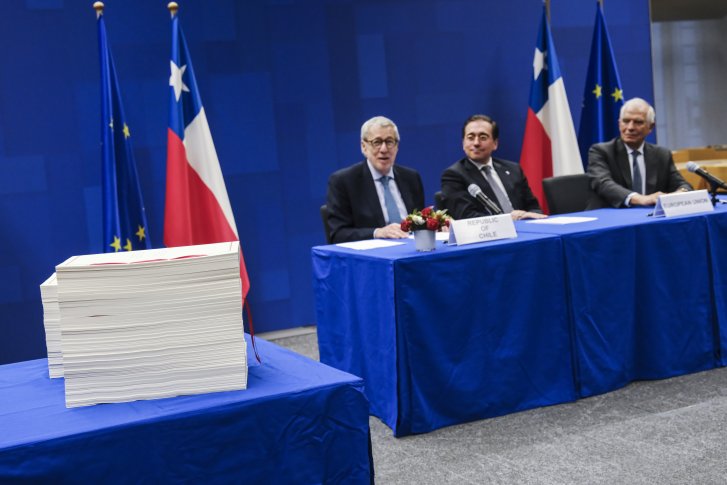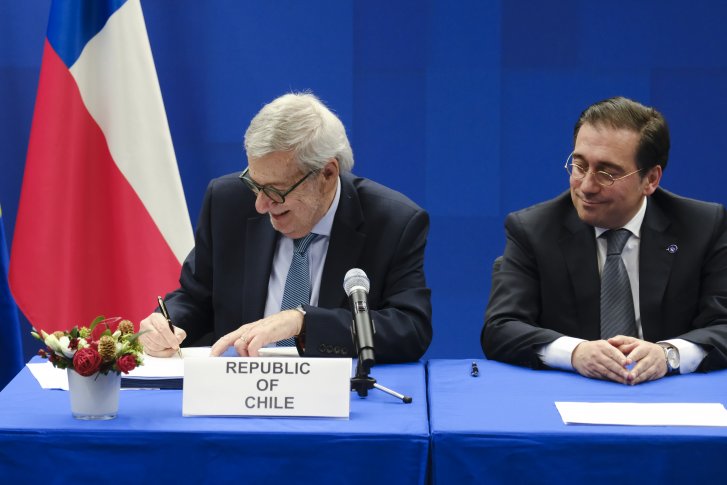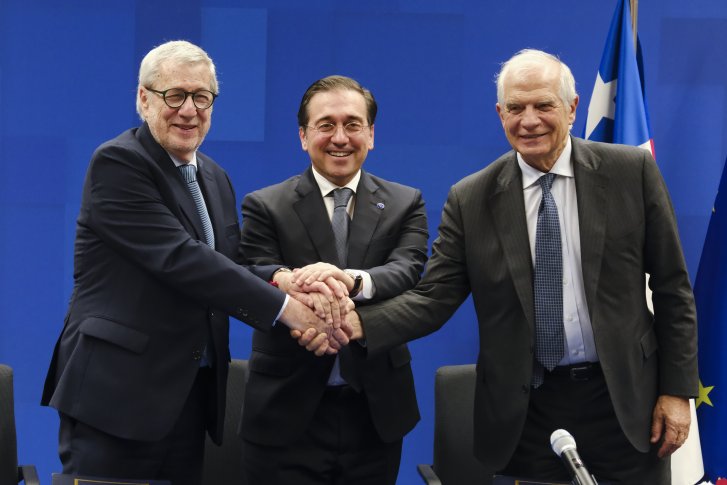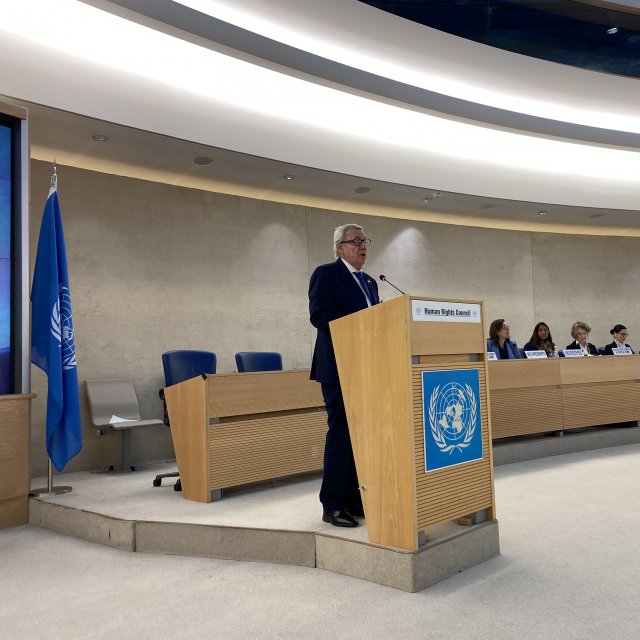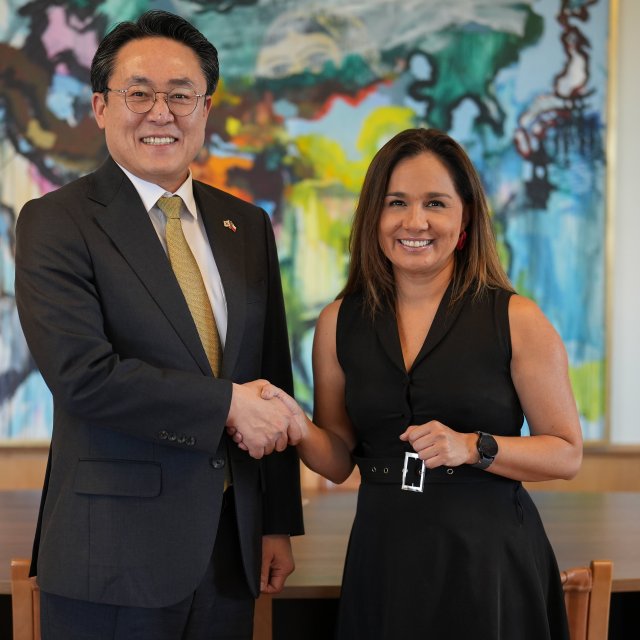 Thursday, February 27th 2025
Undersecretary meets with the Minister of Oceans and Fisheries of the Republic of Korea
Thursday, February 27th 2025
Undersecretary meets with the Minister of Oceans and Fisheries of the Republic of Korea
Chile and the European Union sign Advanced Framework Agreement
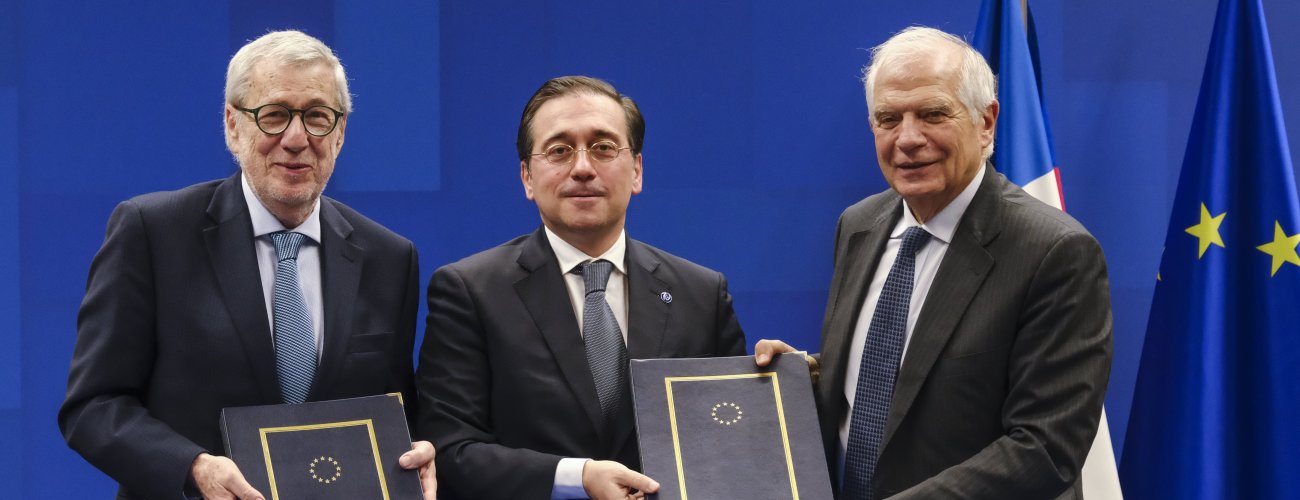
Chile and the European Union (EU) signed in Brussels the Advanced Framework Agreement (AFA) that modernizes the current Association Agreement, in effect since 2003.
The signing ceremony was attended by the Minister of Foreign Affairs, Alberto van Klaveren, on behalf of Chile, and the Minister of Foreign Affairs, European Union and Cooperation of the Kingdom of Spain, José Manuel Albares, and the High Representative of the Union for Foreign Affairs and Security Policy and Vice-President of the European Commission, Josep Borrell, on behalf of the European Union.
For Minister van Klaveren, "this is a historic milestone that consolidates the lasting bond between Chile and the European Union. This agreement not only sets new standards in trade and cooperation, but also reflects the mutual commitment to values that are fundamental to us".
He added that, recognizing the dynamic nature of global challenges, "this agreement addresses not only traditional threats to peace and security, but also emerging issues such as cybersecurity, money laundering, terrorist financing and cybercrime. In addition, it is the greenest agreement signed by Chile, incorporating the standards of the Paris Agreements to combat the effects of climate change."
For her part, the Undersecretary for International Economic Relations, Claudia Sanhueza, who was present during the ceremony, emphasized that "Chile has achieved a modernization that opens new economic and commercial horizons with the European Union, proactively facing the new challenges in the world economy and geopolitics". The authority added that "this agreement is in line with the new issues that the Government has prioritized in its trade policy, such as productivity, inclusiveness and sustainability, which are added to the permanent pillars of trade openness, export promotion and investment attraction".
This agreement will provide an updated institutional framework, which strengthens bilateral relationships, joint dialogue and establishes an update of political and cooperation issues; it addresses the new challenges of international trade, including new topics, and provides national products with better access to the European market, among other matters.
In terms of market access, the new agreement will expand the percentage of products covered by a tariff reduction by the European Union from 94.7% to 99.6%. In addition, it will extend the recognition of geographical indications to Chilean agricultural products and will have dedicated chapters on Gender and Trade, Small and Medium Enterprises, Sustainable Food Systems, Digital Trade, Energy and Raw Materials.
It also establishes the creation of a bilateral, independent and impartial Investment Court to decide on disputes between a foreign investor and the State receiving its investment.
In addition, the AFA incorporates new issues that have emerged from the evolving international agenda, such as gender equality and empowerment of women and girls; international security and cyberspace; citizen security; cybercrime; sustainable development; innovation; climate change; ocean governance; disaster reduction; labor and social issues; youth; digital policy; human rights; corporate social responsibility; the elderly and disabled; space travel; earth observation; public health; and modernization of the State.
The agreement is expected to enter into force when the parties complete the respective legislative and administrative procedures in the countries that make up the European Union and in Chile's National Congress.
Related articles
 Thursday, February 27th 2025
Undersecretary meets with the Minister of Oceans and Fisheries of the Republic of Korea
Thursday, February 27th 2025
Undersecretary meets with the Minister of Oceans and Fisheries of the Republic of Korea
 Monday, February 24th 2025
Minister van Klaveren reaffirms Chile's commitment to human rights and gender equality
Monday, February 24th 2025
Minister van Klaveren reaffirms Chile's commitment to human rights and gender equality







